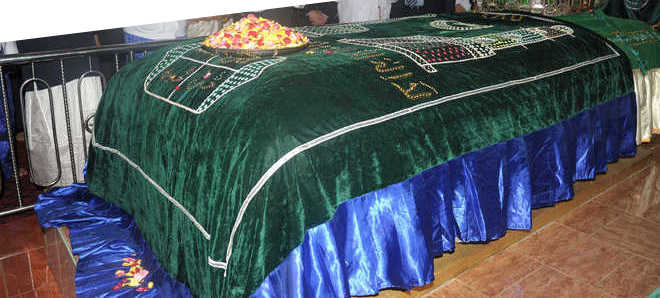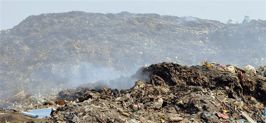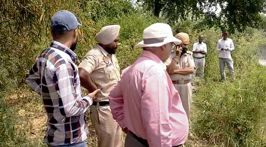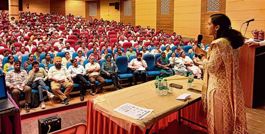
The grave of Bahadur Shah Zafar in Yangon, Myanmar, that was discovered in 1991
Sandeep Dikshit
Much like Dara Shikoh, who failed the test of sternness and ruthlessness when pitted against Aurangzeb for the Mughal throne, Bahadur Shah Zafar was never destined to be the king. But after the British exiled the preferred heir, Zafar's opportunity arrived at the ripe age of 62. By then the Mughal empire had been generously nibbled at the edges and it was debatable whether the Sultan's writ ran on the far bank of the Yamuna.
Like Dara Shikoh, he had poetry running through his veins. His relative non-involvement with the running of the affairs of the state, even if nominal for real power by now vested with the British, meant Zafar had ample time to cohabit with the likes of Mirza Ghalib, Zauk, Momin and Daagh.
If Wajid Ali Shah in Lucknow knew his time was over, Zafar, too, spent most of his life waiting for the curtains to be drawn on Mughal rule. That moment arrived in 1857 when, as an octogenarian, he was compelled to lead a chaotic and spontaneous revolt in which he had little interest or aptitude. The inevitable failure of the revolt did more than rob him of his takht. The tragedy around his persona deepened when he lost all his poetry in the tumult and was forcibly removed from his beloved Delhi for the far-off, quasi-jungles on the edge of Rangoon.
For over a century since his death in 1862, Zafar's poetry of longing, duality of life and inevitability of loss resounded in mehfils around the country along with those of his contemporaries but little was known of the man's resting place till political circumstances compelled Myanmar's military junta to make a gesture of conciliation with the Government of India. The junta was in deep trouble as Aung San Suu Kyi's pro-democracy movement, with enthusiastic Indian backing, was rapidly gaining ground. The new government of Narasimha Rao decided to reverse the course which brought the junta some political relief. In return, in 1991 it disclosed that an unkempt patch of grassland with an undistinguished building at the centre was the final resting place of India's last king.
It was another 20 years before then President APJ Abdul Kalam brought closure by reading the fatiha seeking the mercy of God at the grave of a man who knew his limitations:
"Na kisi ki aankh ka noor hoo, na kisi ke dil ka qarar hoo;
Jo kisi ke kaam na aa sake mai? wo ek musht-e ghubar hoo…".
The unmet poignancy in his poetry was destined to endure.
Padhne faatehaa koi aaye kyon,
koi chaar phool chadhane aaye kyon;
koi aake shama jalaye kyon,
main vo bekasi kaa mazaar huun"
Till Kalam, followed by Manmohan Singh and then Narendra Modi addressed not just this lament by lighting a diya but also his wail against the misfortune against the pitiless wheel of time.



























